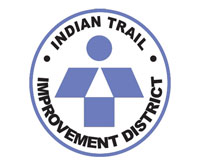At the Indian Trail Improvement District Board of Supervisors meeting last week, ITID President Betty Argue noted that there has been much discussion in the community about the district’s recent assessment increases for the new fiscal year that began Oct. 1
In July, the board gave final approval to the budget, which was whittled down to $11,892,896. That is $88,006 less than last year’s budget. However, assessments went up because no money will be pulled out of depleted reserves to keep them down. Projects in the budget are in response to residents’ complaints, mainly about roads and drainage, Argue said.
“I understand that residents can’t always come to meetings, but we do live stream our meetings, and we have them available for you to watch,” she said. “It’s important to know what the board is talking about on the way through the year, so that when we get to budget planning, you understand why we are discussing the things we are discussing.”
This year, the board has focused its energy on infrastructure. Argue pointed out that ITID has had several emergency infrastructure failures already this year that were not planned in the budget.
“Emergency failures are critical, and, in the past, we have had to contract them out, and in an emergency situation, that would make them a lot more expensive,” she said. “One of the things that we did with this budget is that we carried forward money from last year’s budget to make sure that… we are making those adjustments in the infrastructure. We also have created an additional crew that will be focused solely on doing culvert improvements and canal reclamation. These are canals that have been allowed to overgrow to the point that access to the canal is obstructed.”
ITID is also replenishing road rock to allow proper maintenance.
“That’s one of the things we heard loud and clear from our residents, as to the condition of their dirt roads, and we’re hearing from staff that there is only so much you can do when you don’t have the material on the road,” Argue said. “We don’t want to allow our roads to deteriorate to the point of some of our surrounding neighbors, so it’s important that we invest in that.”
Argue noted that ITID is also acting to improve deteriorating drainage swales, which move water from the roads and property into the canals. “Rather than just road retros, we’re switching to swale retros and getting those done and out quickly, so we have a bigger impact on the ability to move water,” she said.
Argue stressed that it is important to hear back from the community, and she had heard from residents about issues that the board is trying to address.
“It’s not just a one-year plan, it is a 20-year plan, and it is going to take 20 years of being diligent and vigilant in getting it done,” she said. “So, who you elect on this board is very important, because everybody wants to hear you’re going to lower my taxes… Keeping your taxes low is what gets you into a situation like what we’re in now. At some point, you have to pay the piper.”
Argue pointed out that the budget is posted in detail on the district’s web site at www.indiantrail.com.
“It tells you how we’re spending the money,” she said. “If you have any questions, please send an e-mail. Call somebody. Ask someone about it. You’re going to get an answer, because there is nothing going on here in terms of wasteful spending. Every dime that is being spent is being spent wisely.”
Supervisor Jennifer Hager agreed with Argue.
“Many complaints happen, and we can’t correct anything without spending a little bit of money,” Hager said. “We just heard a conversation about horse trails. A lot of people contacted me about that, and to do the work, you have to pay the people to do the work.”
Supervisor Ralph Bair has also listened to the complaints about roads and drainage.
“We’ve heard these complaints for a lot of years,” Bair said. “I’ve been sitting on this board for a while. We’ve done everything we can to quell the complaining on certain roads. We can only do a certain number of roads at a time. We made do with everything we had to work with. We didn’t always have the personnel or the equipment to do all the jobs down the line. That’s why some of them are running into next year.”
Bair said he voted for the budget in order to give the district the money to do what it needs to do.
“However, I’d like not to see it spent on equestrian trails,” he said. “There’s plenty of grants out there. There’s other means of funding the improvements to equestrian trails.”
Bair said some of the road repairs were expensive because the district had to use contractors to do the work.
“Replacing those pipes ourselves is the best way to go,” he said, pointing out that he got a maintenance call from one resident where the road swales were practically gone, and stormwater was crossing the road from one swale to the other, washing out the road. “That is really bad. The water goes down, cuts across the road and into the swale on the other side.”








